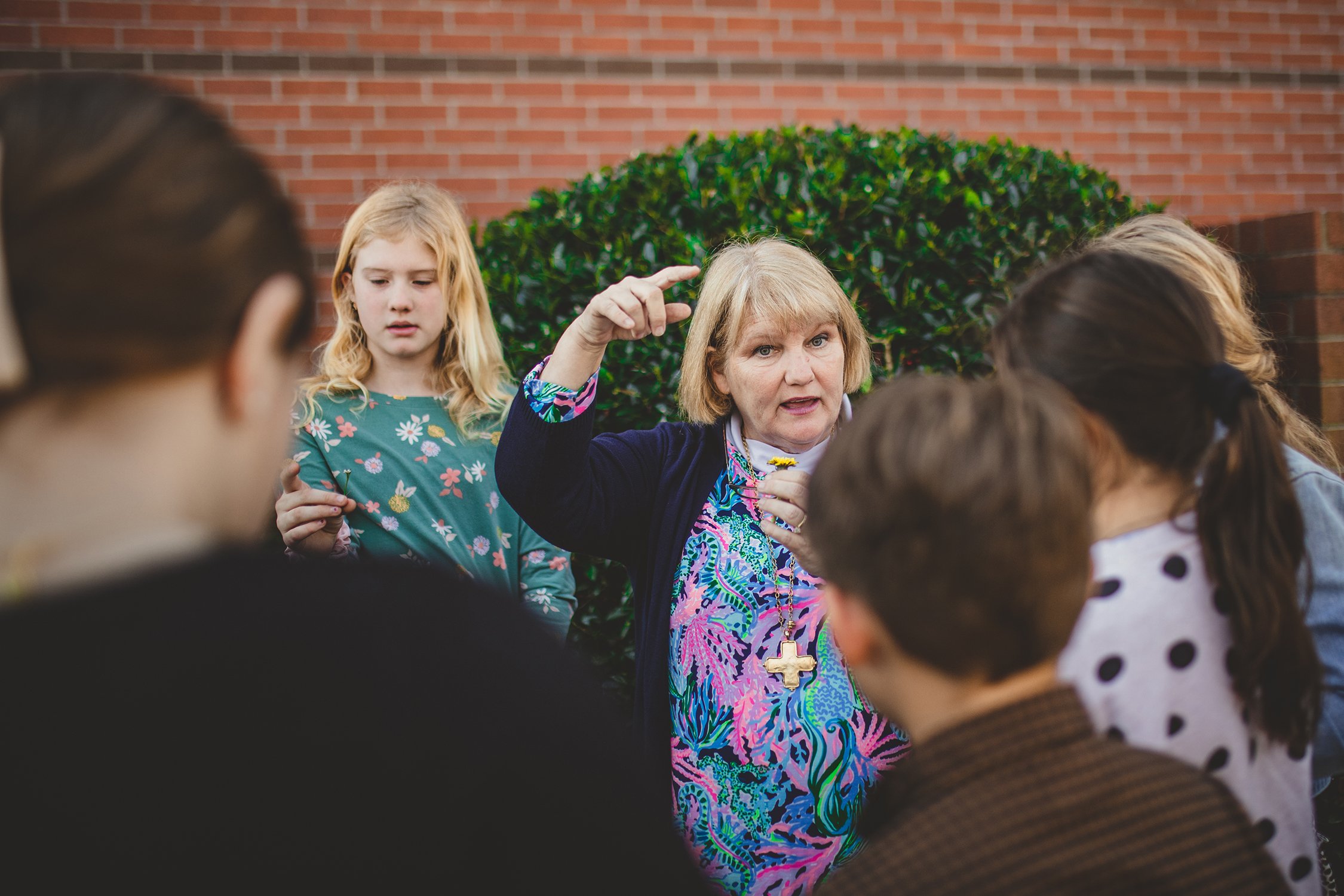
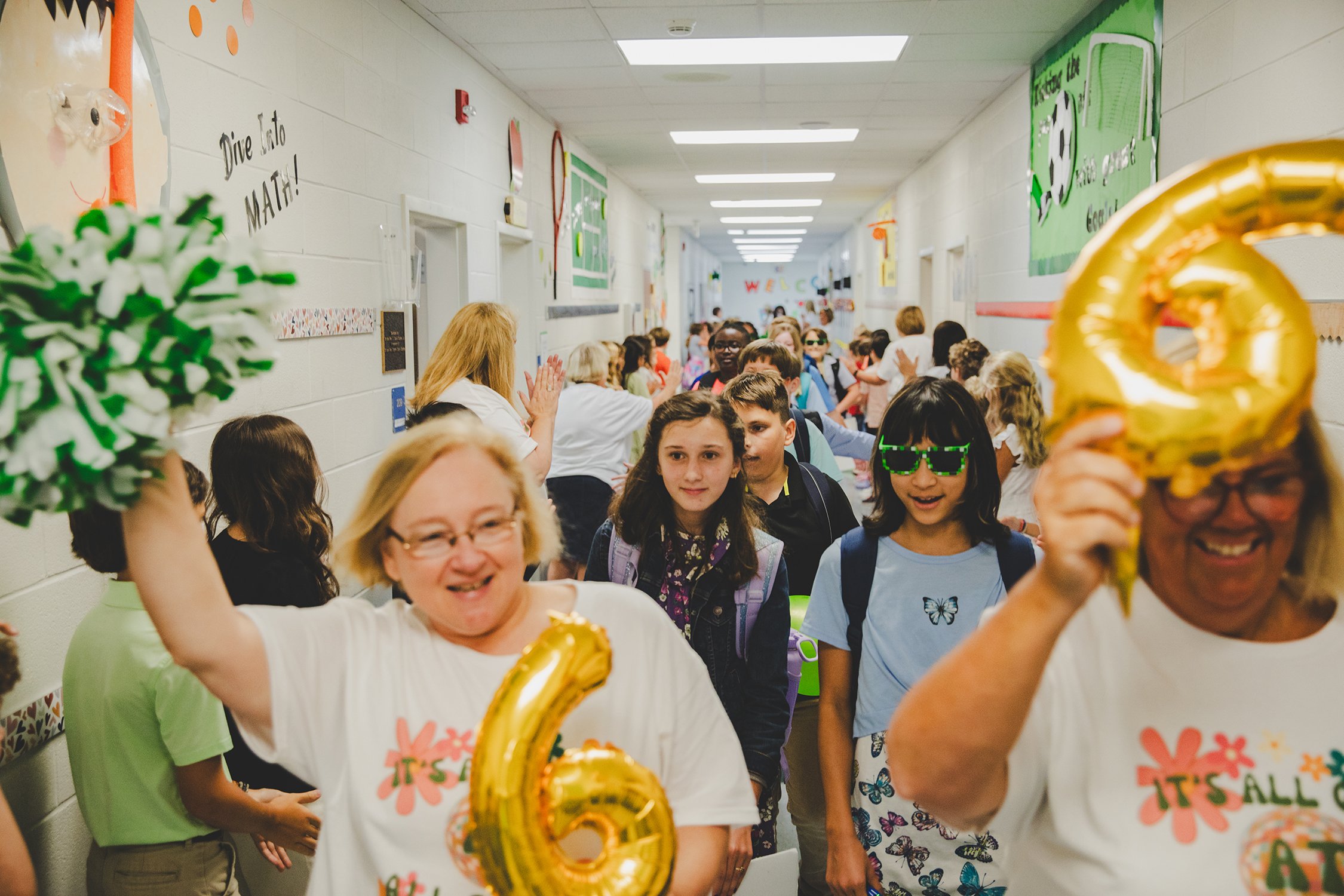
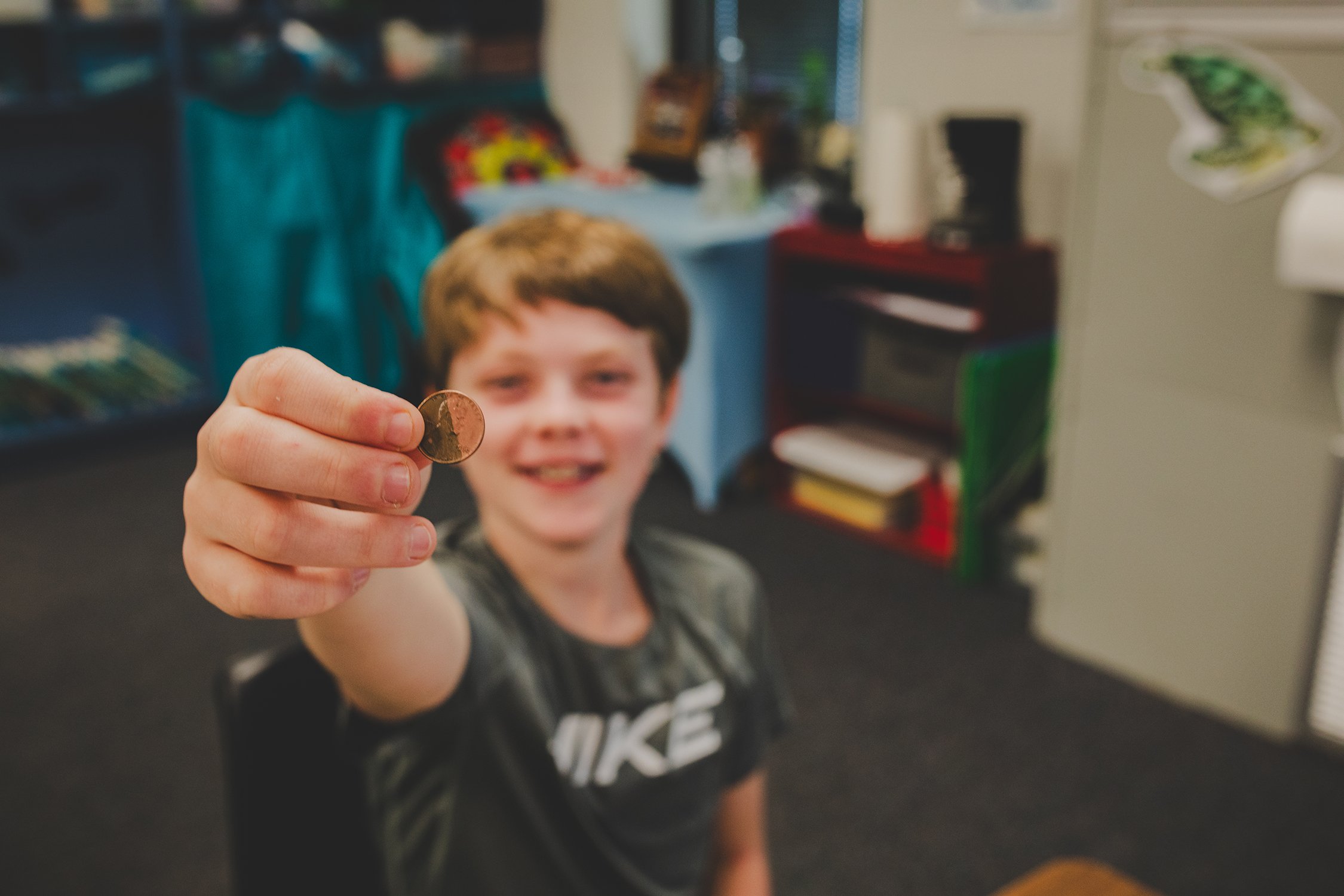
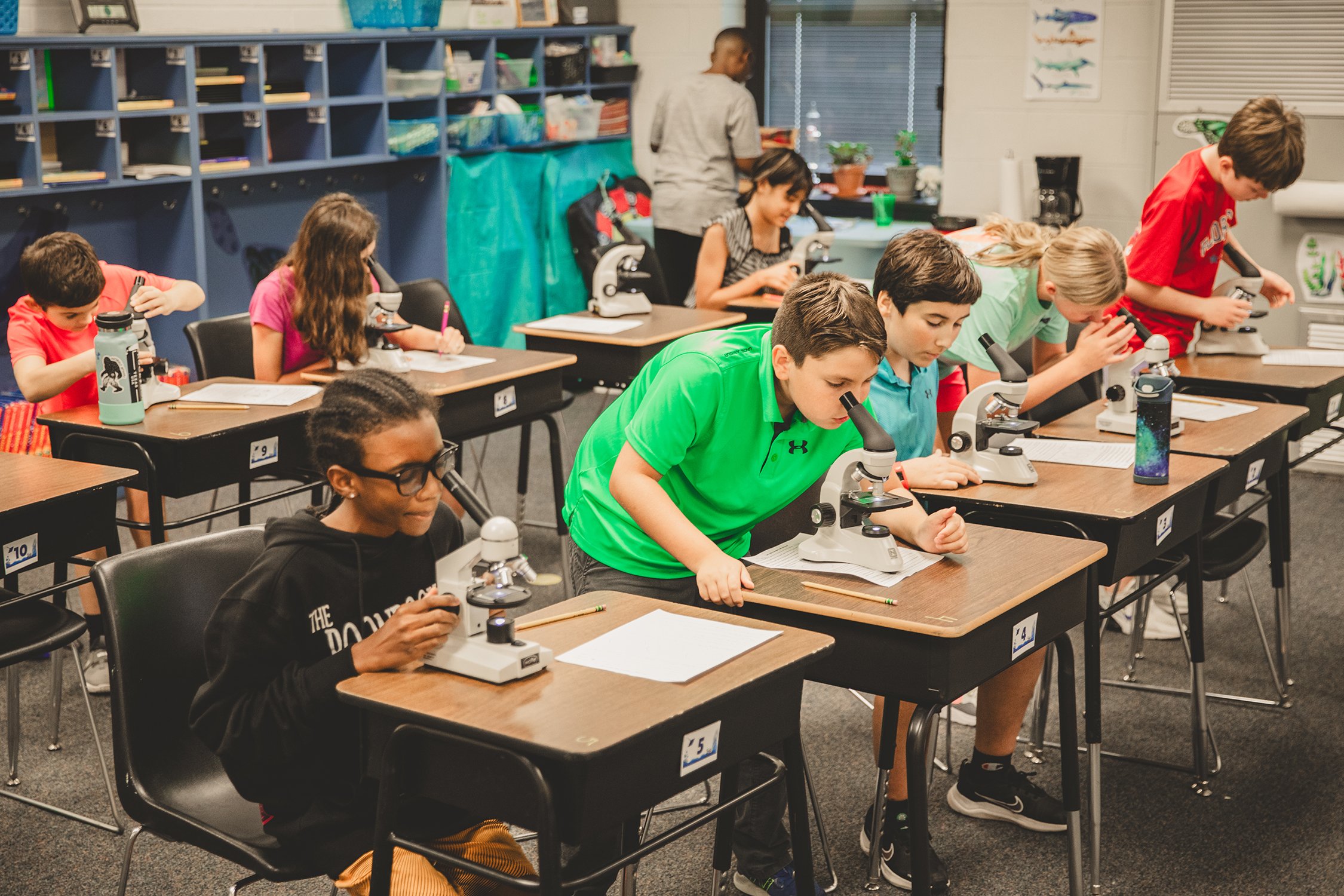
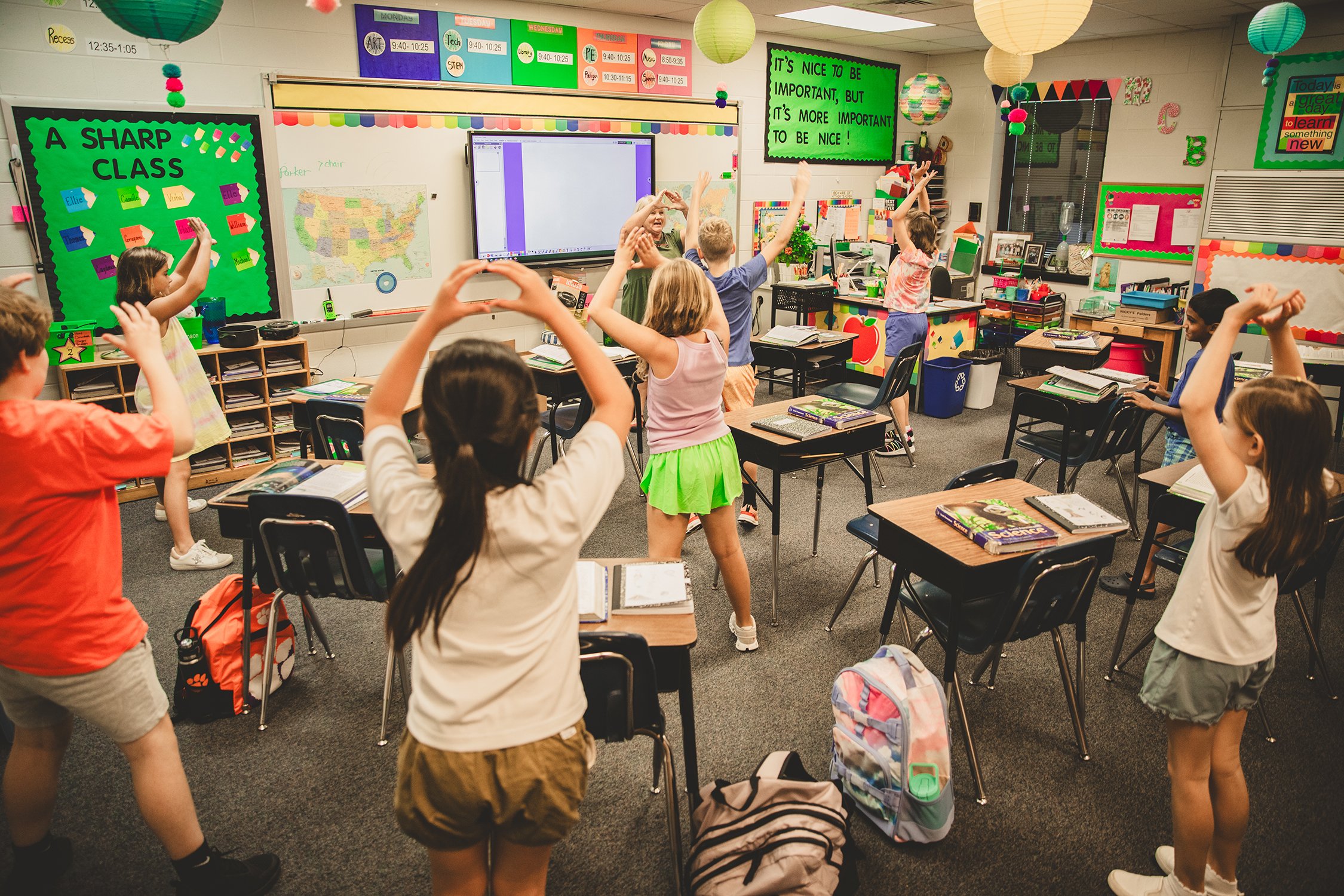
4th - 6th Grade Overview
In our fourth through sixth-grade curriculum, we place a strong emphasis on instilling crucial life skills in our young learners. We focus on creating Leaders, fostering Academic Excellence and Creativity, all within the framework of our Christian values.
Leadership takes center stage as we teach our students to take ownership of their actions and exhibit accountability. We believe that these early lessons in effective communication build a strong foundation for character development.
Academic Excellence is nurtured through a curriculum that encourages critical thinking and independent learning. We firmly believe in equipping our students with the ability to tackle challenges and find innovative solutions while aligning with our Christian faith's core principles.
Creativity is honed with a special emphasis on problem solving and adaptability. We understand that flexibility is not only a valuable academic skill but also an essential tool for building ones character and fostering understanding within our diverse community.
This Christian environment not only prepares our students academically but also equips them with essential life skills, empowering them to make a positive impact on their communities while living out their faith with integrity. Our holistic approach ensures that young learners flourish academically, spiritually, and socially, laying the foundation for a purpose-driven life. It's our commitment to nurturing well-rounded individuals who will go on to lead fulfilling and meaningful lives.
Leadership
-
Our students demonstrate responsibility by completing their assignments on time, taking care of classroom materials, and being accountable for their actions. They learn the importance of fulfilling their commitments and duties.
-
Effective communication is a vital leadership skill. Our students learn to express themselves clearly, listen actively to others, and convey their ideas and thoughts in a respectful and articulate manner.
-
Encouraging students to work collaboratively is essential. They learn to understand the value of teamwork, learn to share responsibilities, and contribute to group projects, fostering cooperation and unity.
-
Our students continue developing problem-solving skills by identifying challenges and brainstorming solutions. This involves critical thinking, creativity, and adaptability to different situations.
-
Leadership requires understanding and considering the feelings and perspectives of others. Our students develop empathy by practicing kindness, supporting classmates, and showing compassion in their interactions as they participate in many forms of community service projects & opportunities.
-
Being organized is an essential leadership skill. Our students learn to manage their time, keep track of assignments showing more independence.
-
As emerging leaders, our students develop the ability to make informed decisions.
-
Teaching conflict resolution skills is important for leaders. Our students are led in learning to resolve disputes peacefully, promoting a harmonious and inclusive environment.
-
As young leaders, our students are encouraged to set positive examples for their peers by demonstrating integrity, honesty, and a strong work ethic. Being a role model can inspire others to follow suit.
Our upper elementary school students begin developing their leadership skills that lay the foundation for future leadership roles. These skills include:
By nurturing these leadership skills in our students, we can help them grow into responsible, empathetic, and effective leaders who can positively influence our school community and beyond.
Academic Excellence
-
They learn to analyze information, make connections between concepts, and approach problems with a logical and thoughtful mindset. They are encouraged to ask insightful questions and evaluate the information they encounter.
-
Our students are developing advanced reading and comprehension skills, allowing them to understand and interpret a wide range of texts, including complex literature and non-fiction materials.
-
Our upper elementary students are learning to express their thoughts and ideas clearly through written communication, using proper grammar, vocabulary, and structure in their essays, reports, and creative writing assignments.
-
Our students are gaining a solid foundation in mathematics, including the ability to work with numbers, understand mathematical concepts, and solve problems using critical thinking and mathematical reasoning as well as efficiency.
-
They are learning to conduct research, gather information from various sources, and organize it effectively. They are capable of using digital and print resources to support their academic work.
-
Our students are learning how to cope with and learn from their mistakes, embracing challenges, and adapting to new learning experiences. They are encouraged to persevere through difficult tasks and not be discouraged by setbacks.
-
Our students are developing a solid grasp of digital literacy, including using technology for research, learning, and presentation purposes. They are also learning to understand the importance of online safety and responsible internet use.
-
Our students are presented with assignments that encourage creative and innovative thinking, finding unique solutions and expressing their ideas in inventive ways.
-
Our students are encouraged to be self-motivated and show that they are capable of self-directed learning, taking initiative in exploring topics of interest beyond the curriculum.
Our Upper elementary school students exhibit academic excellence which includes the following skills and characteristics:
Curiosity and a Love of Learning are encouraged everyday. Our staff wants every child to have a genuine interest in learning and a desire to explore new topics and ideas beyond the required curriculum.
Creativity
Creativity skills in upper elementary school students involve their ability to think imaginatively, solve problems in innovative ways, and express themselves artistically. Many upper elementary students show creativity through art, music, and other forms of self-expression. They enjoy experimenting with different art mediums and techniques, and they may be passionate about developing their artistic skill.
Creativity is often linked to critical thinking. Upper elementary students can analyze information, connect seemingly unrelated ideas, and evaluate different perspectives. Creativity involves being flexible and adaptable in the face of change. Upper elementary students who are creative are more likely to embrace new challenges and adapt to unexpected situations with a creative and innovative mindset.Their curiosity drives them to seek new information and experiences. Upper elementary students use creativity to express their emotions, thoughts, and beliefs. Whether through writing, art, or other forms of self-expression, they find ways to communicate and share their inner world with others.
Creative children are often willing to take risks and step out of their comfort zones. They understand that failure is a part of the creative process and use setbacks as learning opportunities.Fostering these creativity skills in our upper elementary students is important, as it helps them develop into innovative thinkers who can adapt to an ever-changing world and contribute positively to their communities.
-
Our educators ensure to make learning fun, entertaining and exciting. Throughout our lower elementary grade levels your child will be engaged in a variety of hands on experiences that help foster responsibility, problem-solving skills and effective communication. They will read allowed to their peers as the leader reader, present science experiments, be a Star of the Week, present a show and tell, be the Star of the Week, Lead Chapel Programs, and so much more.
-
At All Saints’ we believe that field trips and experiences grant our students invaluable hands-on learning outside the classroom. They provide opportunities to connect theoretical knowledge with the real world, fostering a deeper understanding of subjects like science, history, and culture. Field trips also stimulate curiosity and engagement, encouraging active learning through exploration and discovery. These outings promote social interaction, teamwork, and critical thinking skills while exposing young students to new environments and diverse perspectives, enriching their educational journey and creating lasting memories.
Our field trips and experiences change from year to year and are different for each grade. However, a few examples are; WPDE Station, The Florence Symphony, Community Service projects, Williamsburg, VA and Washington, DC!
-
At All Saints', we recognize the dynamic nature of technology and the importance of adaptability in education. To facilitate effective learning in the digital age, we maintain a 1-1 Chromebook ratio, ensuring that each student has their own laptop. Our students leverage these devices to access a variety of educational tools and platforms, including Prodigy, Epic Learning, Renaissance Place, and Google Classroom. These resources empower students to engage with interactive content, collaborate with peers, and access a wealth of information, enhancing their educational experience and preparing them for the challenges of an increasingly tech-driven world.
-



